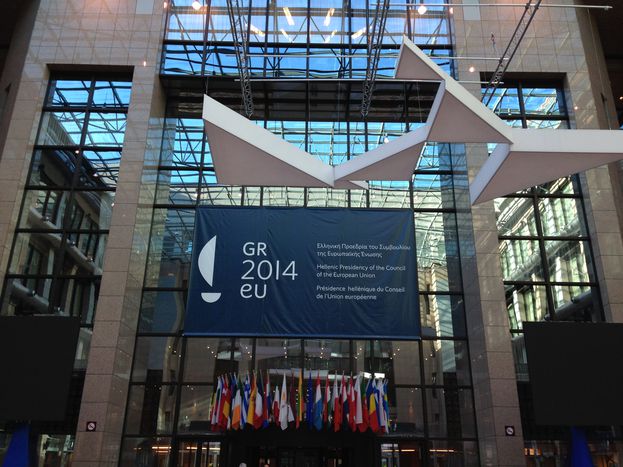
Brussels Summit: A last one for the road
Published on
Translation by:
Ásta Lovísa(Live from the summit)The European summit for heads of state that are opening today marks the end of an era. It’s indeed the last one of the Barroso Commission. That marks ten years that the latter was the head of Berlaymont (seat of the Commssion).
The Russian intervention in Crimea has evidently upset the initial program of the summit. Originally, that one was dedicated to questions concerning the economy, energy, climat changes and relations with Africa. Now, it seems that Crimea and Russia are the only things on the program.
A capital agreement
An agreement to finalise the European stability mechanism was found on Thursday morning: the representatives of the European Council and Parlament reached an agreement concerning a new device to manage bankruptcy in banks. The discussion this afternoon will focus on tax evasion and transparency in banking: Luxembourg and Austria need to be convinced to share their information.
This agreement has responded to the optimism of leaders of the institutions. Thus, Herman van Rompuy has qualified as the “prudent optimist”. According to a seasoned journalist it is rare to see Mister Barroso and van Rompuy in such a good mood. We even saw José Manuel Barroso exchanging pleasantries with a representative of Business Europe.
A hard return to reality
The developpement of the Ukranian crisis should should make the tone a bit more somber. Europe has indeed found itself between a rock and a hard place : how can they say no to the Crimean annexation without upsetting Russia which is a vital partner of many of the Member States. On that subject, the president Barroso has affirmed that the Commsion will not acknowledge the Crimean annexation. It remains to be seen if the heads of state will reach a compromise that will have a chance of persuading Vladimir Putin.
If the matter will sort itself outself out quickly enough, the Conuncil might have the time to raise the issue of competitiveness, prosperity and employment. In fact, we have reached the end of the third European week and the mid-term of the program Europe 2020. Which means it is the ideal moment to make an assessment. We might fear that if this is not done, the critics of the Union will rejoice and accuse Europe of refusing to acknowledge these failures.
Finally, it needs to be said that the European elections will take place in two months and even if none of the participants (except Mister Schulz) is a candidate, politicians are always more motivated and engaged when an election is close. It remains to be seen if the results of the summit will be the height of their joy.
Translated from Un dernier pour la route



